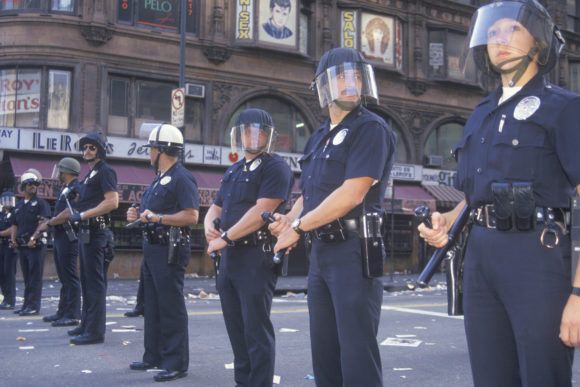According to the Summer/Fall 2016 Edition of the Clements Worldwide Risk Index, business interruption is the leading cause of losses for companies, multinational organizations and nongovernmental organizations (NGOs) that operate outside the U.S.
Most business interruption is caused by property damage from fire and explosions, power blackouts, and catastrophic weather events like earthquakes and hurricanes. In recent years, organizations have come to terms with the fact that manmade risks like political violence and cyber-attacks are as much of a potential threat to global operations as environmental risks like weather and catastrophic perils.
Political violence is a subset of political risk, which encompasses strikes, terrorism and civil disturbances. Preliminary results of the Winter/Spring 2017 Edition of the Clements Worldwide Risk Index point to both political violence and legislative risk as top losses for global companies. This is further evidence of the volatility that now often encompasses electoral and legislative activity, and its potential to contribute to instability — and with it, business interruption.
Viewed through an even broader lens, concern about political risk, violence and government change/legislation indicates a global order — including global economic arrangements — under enormous stress. The United Kingdom’s vote to exit the European Union is the most dramatic example of this dynamic. Other examples include:
Deliberate targeting of civilian activities: While civilians and non-military economic enterprises have always been harmed by conflict, it has been accepted that they are not deliberate targets. The rise of groups and self-proclaimed states that deliberately target civilians has seriously challenged this norm. As disturbing, states are also now crossing this line with impunity. Attacks on hospitals, humanitarian relief operations and economic enterprises in Syria and Yemen are simply the most egregious examples. Deliberate business interruption is a daily occurrence in several countries.
Violent redrawing of borders: Armed groups and states have used violence to redraw national borders in the Middle East and eastern Europe. While these new borders are often unofficial, they are real. They disrupt personal and business lives, close trade routes and upend supply chains. They also inject uncertainty that affects internal investment and external investors’ analyses.
Illiberal democracy: Eastern Europe and the near East have witnessed the rise of “illiberal democracy.” These are movements and states that believe democratically elected officials can act with impunity, usually in the interest of the majority. Institutions and practices designed to protect minority rights are weakened or eliminated. Any challenge to rule of law is a recipe for heightened risk. No one can be certain when any rights, including property rights, will be violated. In such an environment, politically motivated business interruption as a result of denial of access to operational centers can become a governance strategy.
Global organizations are faced with a breadth of risks, but there are ways to manage risks through insurance. Organizations can benefit from the advice of an experienced broker to maximize the value of new insurance products to address these heightened risks.
Business interruption is a large and growing concern, driven by challenges to the global economic and political order. Organizations can use new products to insure against risks that could interrupt activities and investment plans.
Topics Europe
Was this article valuable?
Here are more articles you may enjoy.



 AIG’s Zaffino: Outcomes From AI Use Went From ‘Aspirational’ to ‘Beyond Expectations’
AIG’s Zaffino: Outcomes From AI Use Went From ‘Aspirational’ to ‘Beyond Expectations’  Experian Launches Insurance Marketplace App on ChatGPT
Experian Launches Insurance Marketplace App on ChatGPT  Former Broker, Co-Defendant Sentenced to 20 Years in Fraudulent ACA Sign-Ups
Former Broker, Co-Defendant Sentenced to 20 Years in Fraudulent ACA Sign-Ups  Insurance Broker Stocks Sink as AI App Sparks Disruption Fears
Insurance Broker Stocks Sink as AI App Sparks Disruption Fears 


